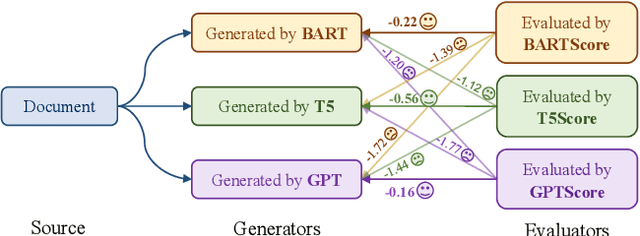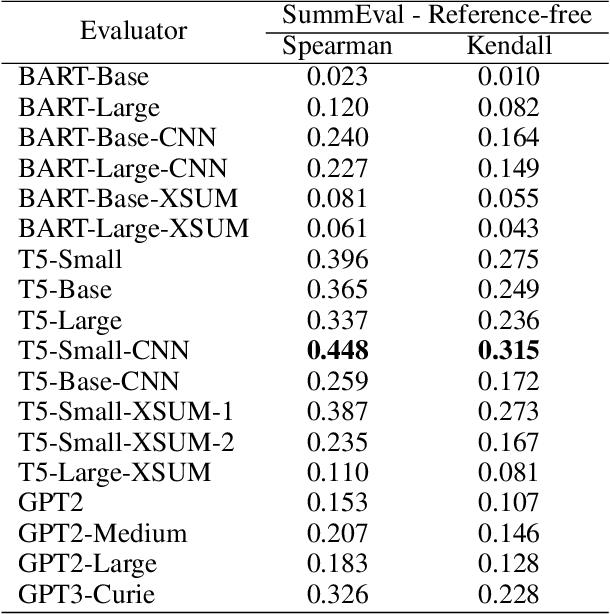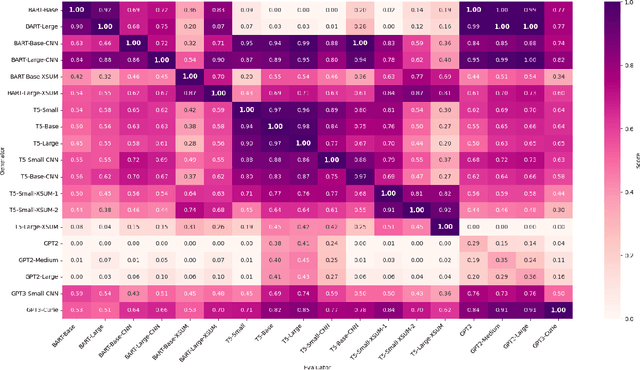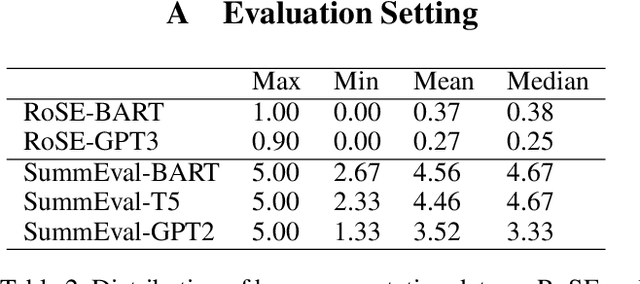LLMs as Narcissistic Evaluators: When Ego Inflates Evaluation Scores
Paper and Code
Nov 16, 2023



Automatic evaluation of generated textual content presents an ongoing challenge within the field of NLP. Given the impressive capabilities of modern language models (LMs) across diverse NLP tasks, there is a growing trend to employ these models in creating innovative evaluation metrics for automated assessment of generation tasks. This paper investigates a pivotal question: Do language model-driven evaluation metrics inherently exhibit bias favoring texts generated by the same underlying language model? Specifically, we assess whether prominent LM-based evaluation metrics--namely, BARTScore, T5Score, and GPTScore--demonstrate a favorable bias toward their respective underlying LMs in the context of summarization tasks. Our findings unveil a latent bias, particularly pronounced when such evaluation metrics are used in an reference-free manner without leveraging gold summaries. These results underscore that assessments provided by generative evaluation models can be influenced by factors beyond the inherent text quality, highlighting the necessity of developing more dependable evaluation protocols in the future.
 Add to Chrome
Add to Chrome Add to Firefox
Add to Firefox Add to Edge
Add to Edge